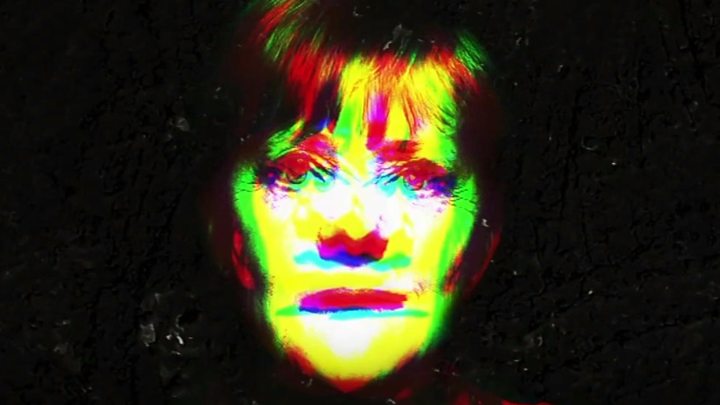Germany coalition: Merkel courts SPD in pivotal talks
German Chancellor Angela Merkel says she is hopeful that fresh coalition talks aimed at ending the country's political stalemate can succeed.
More than three months after a general election, Germany is still without a new government.
The five-day talks will include Mrs Merkel's Christian Democrats (CDU), its sister party the Christian Social Union (CSU), and the Social Democrats (SPD).
Many see this as her last chance to form a stable coalition.
"I believe the talks can succeed," Mrs Merkel said as she arrived at the SPD headquarters in Berlin.
"I'm going into these talks with optimism, indeed it's clear that in these few days we have a huge amount of work ahead of us, but we're willing to take on this work and achieve a good outcome," she added.
After Sunday's talks finished, SPD General Secretary Lars Klingbeil said there had been a "serious, constructive and open" discussion.
In a statement agreed with other parties, he said some of the 15 working groups on policy areas had made good progress although others had not. He did not elaborate.
Why is there still deadlock?
The centre-left SPD has governed jointly with the chancellor's centre-right party for eight of the last 12 years. But, after a historically poor poll result in September, SPD leader Martin Schulz had vowed to take his party into opposition.
Pressure has mounted on the SPD since November, when Mrs Merkel failed to cobble together a coalition with the liberal FDP and the Greens.
The chancellor must now convince SPD leaders that they have enough common goals to start formal coalition negotiations by March or April.
Those opposed to any deal with Mrs Merkel include a new group within the SPD calling itself NoGroKo (no grand coalition).
Mr Schulz has said he would not draw any red lines and that "new times call for new politics".
- Will this be Merkel's last chance to form a government?
European Union allies, such as France, see Germany as a pillar of stability in the bloc and will be hoping Mrs Merkel succeeds.
However, according to one opinion poll on Sunday, one in three voters thought Sunday's talks would fail, although 54% said a revived "grand coalition" of the big parties would be positive for Germany.
What are the sticking points?
Immigration, Europe, tax, and healthcare could all become points of contention.
Within the SPD, there are fears that rejoining a grand coalition would cost the party yet more support. The party's poll ratings are down and some centre-left critics argue the SPD has given up its core principles to cling to power with Mrs Merkel.
Mr Schulz said on Sunday he wanted to bring Germany up to date in education policy, housing investment and infrastructure.
In her comments, the chancellor focused on internal and external security as well as social cohesion. The foundations had to be laid for years of prosperity so that Germans could live in safety and democracy, she said.
Mrs Merkel is facing pressure from conservatives, who say she has abandoned traditional values and driven voters towards the far-right Alternative for Germany (AfD), which is now represented in the federal parliament for the first time.
- In depth: Angela Merkel's quiet power
- Just how far to the right is AfD?
Both sides face a balancing act
By Damien McGuinness, BBC News, Berlin
Party leaders are keen to strike a deal. They know that otherwise Germany could end up with an unstable minority government, or the uncertainty of fresh elections.
But party members on both sides are less enthusiastic. They worry that the compromises needed for an agreement will betray party ideology. And polls appear to show diminishing support for a re-run of a governing coalition between the conservatives and the centre-left.
So Angela Merkel and Martin Schulz will have to somehow compromise on controversial issues such as taxation and refugees – while at the same time convincing their grassroots supporters that they have remained loyal to core values.
Will the talks succeed?
Before Sunday's meeting the three potential allies had already discussed preliminary issues and had spoken of going into the talks with optimism.
Horst Seehofer of the CSU was adamant as he went into the talks that "we must find an agreement".
The parties have agreed to a media blackout during the talks, which will finish on Thursday.
If they prove successful – and the SPD's members vote to proceed – full-blown coalition talks will follow.
What happens if they fail?
If talks fail, Mrs Merkel could form a less stable minority government with the Greens, with SPD support.
However, she has previously said she would prefer a fresh election to that eventuality.

